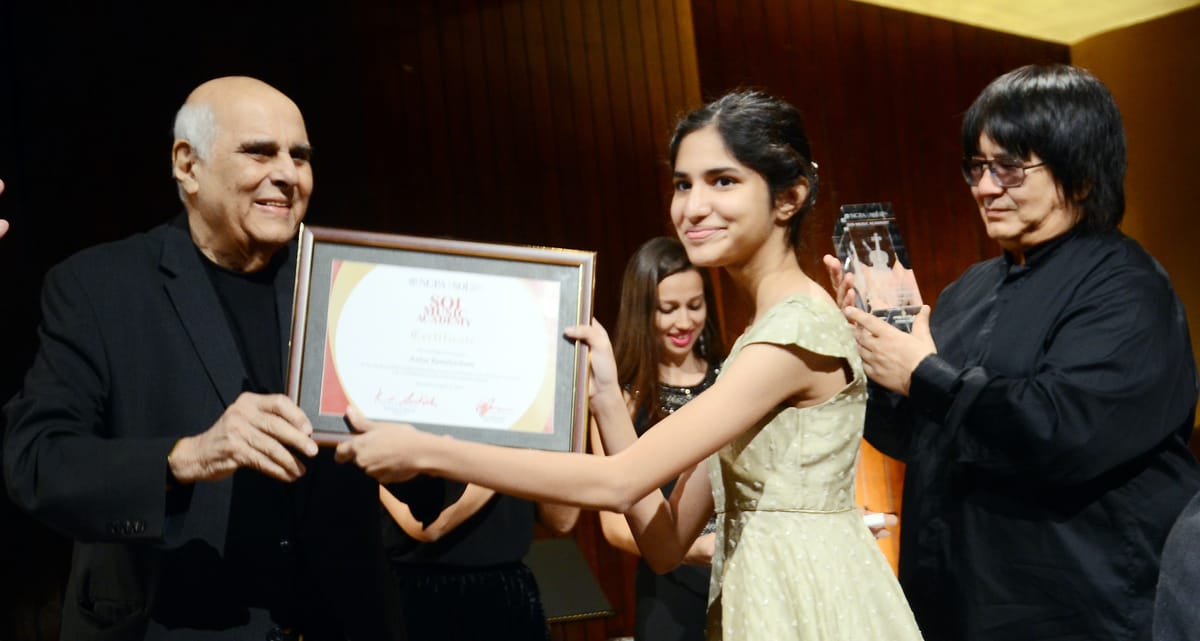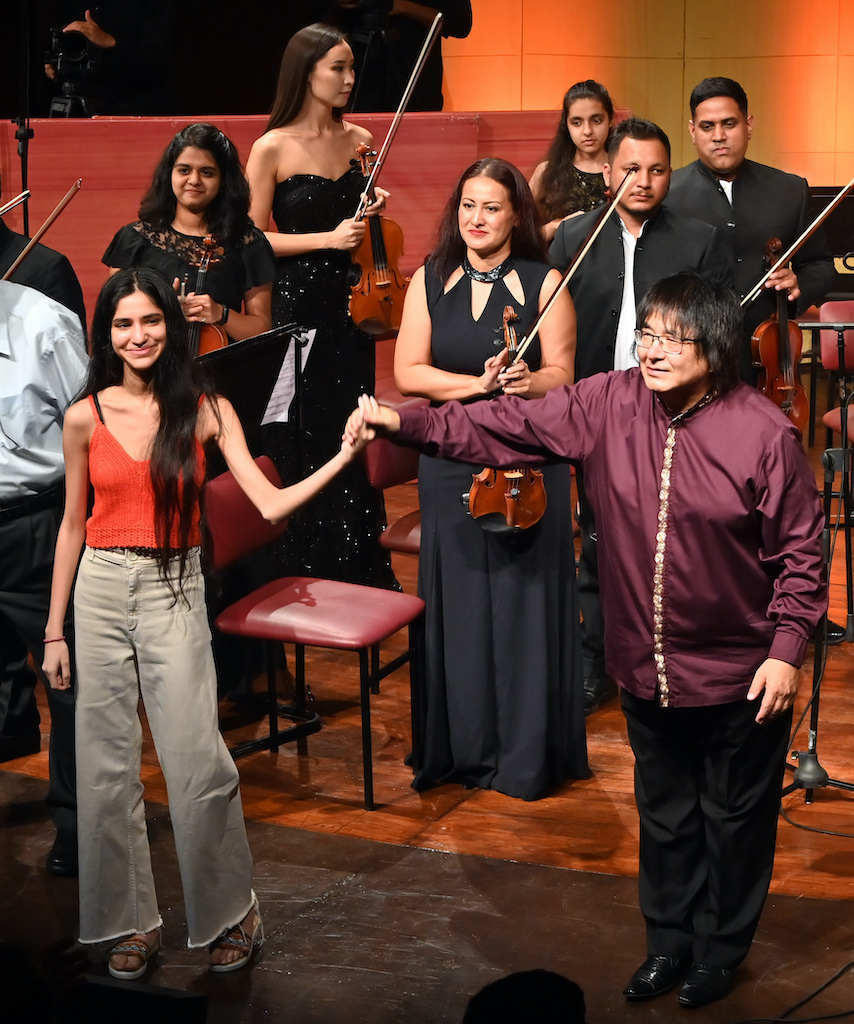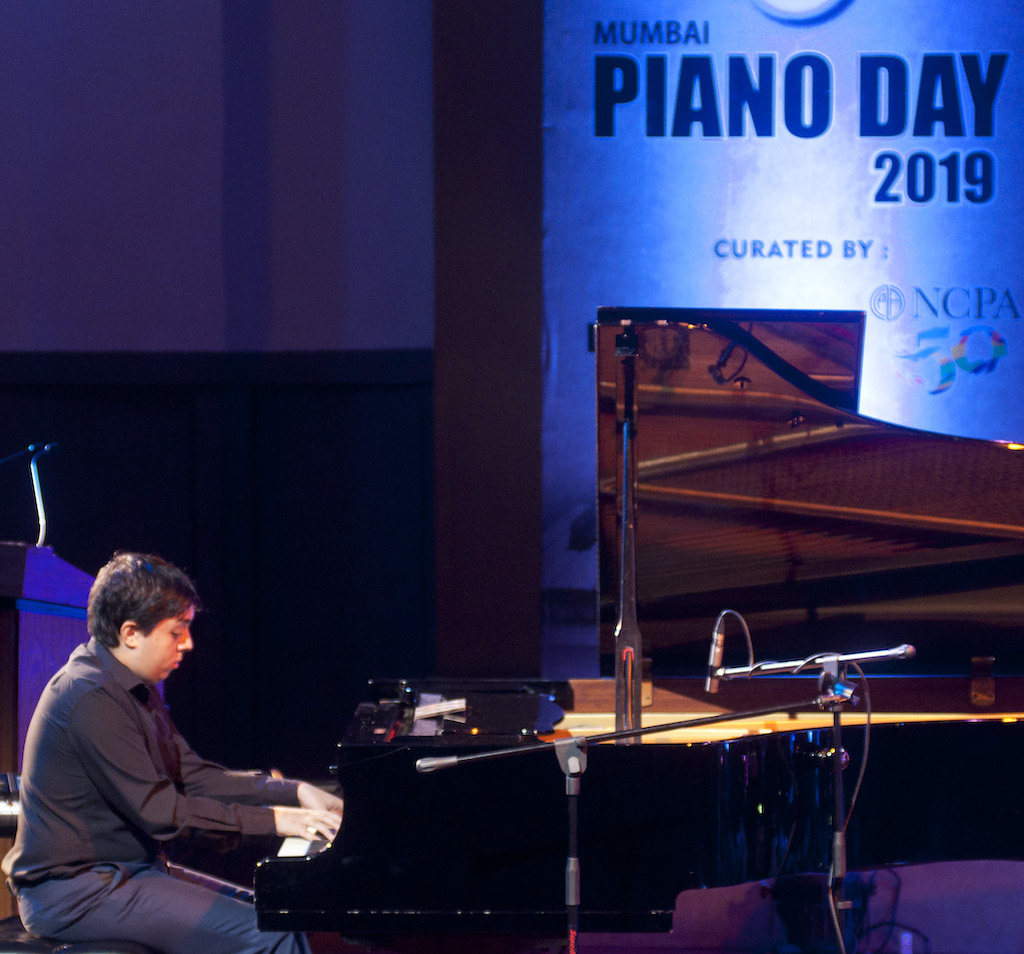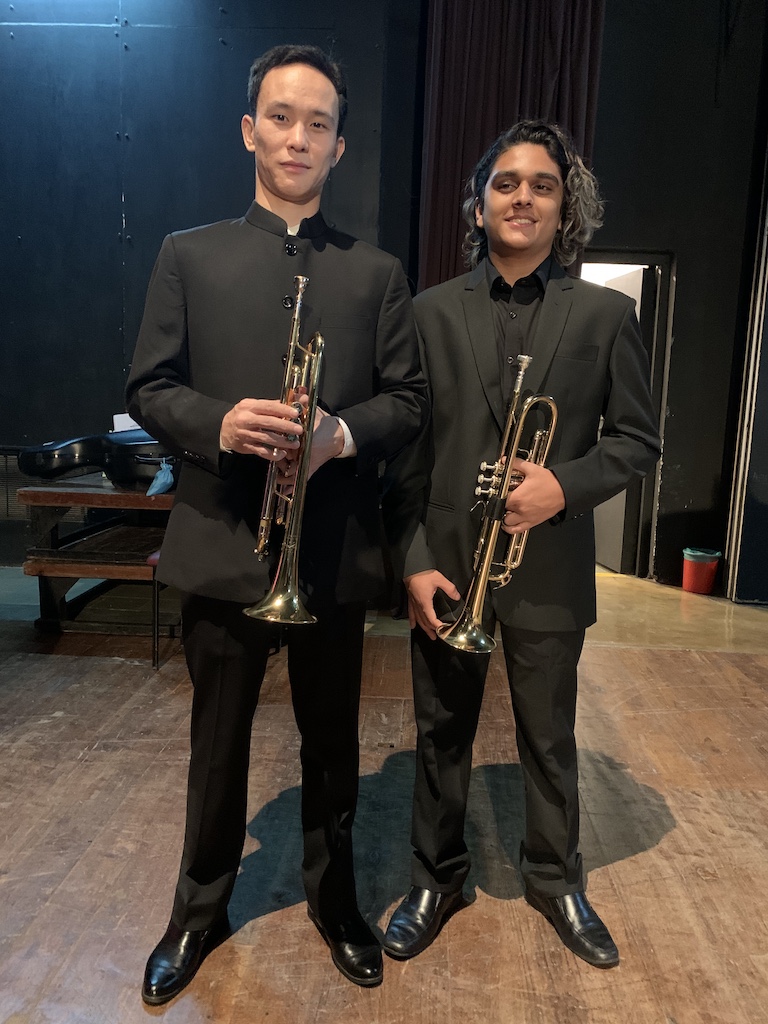The Kids Are Alright

Why is opting for a career in music, especially Western classical music, not an easy decision? We learn about the concerns and fears of the parents of three SOI Music Academy alumni who are pursuing or about to embark on a higher education in music overseas. We also speak to the students themselves to understand how to navigate the stressful application process.
Is my child on the path to shaping a career that will pay the bills? Will they be able to survive and thrive in this cut-throat world? When it comes to life choices, parents or guardians will always worry about their children. This is especially true in the world of music, where apprehensions about making a viable career out of a passion are all too real. Marat Bisengaliev—violinist, conductor and Music Director of the Symphony Orchestra of India who established the academy and remains deeply involved in its operations—says,
“Yes, parents tend to be hesitant about enrolling their children in higher education institutions, specifically for Western classical music. They worry that their child might not have a sustainable career at the end of it all. But, as we have seen, many of the young learners who have secured admission abroad are now thriving in their practice and will one day embark on their careers. We are hopeful they will return to play in the SOI.”
To this end, the NCPA seeks to create an atmosphere where professional musicians can find employment and display their talent to the rest of the world. “Indians are naturally talented musical people and with the right kind of guidance and dedicated hard work, there’s no reason they cannot do well,” says Mr. Khushroo N. Suntook, Chairman, NCPA.

The realities of a life in music
Cyrus Nallaseth, father of SOI Music Academy alumnus Soli Nallaseth who has been studying at the Royal Academy of Music, London, for the last four years, says, “My wife Simi is an artist and has never had any doubts about Soli pursuing music. Soli too is confident about his career choice, but even today, I wonder about his future and worry. Nowadays, generally, it is not the most musically talented students who thrive but the ones who win major competitions. So, much more emphasis is placed on technical proficiency than musicality, and to win competitions one needs an element of luck.”
Soli has been playing the piano since he was four, and on graduating from the SOI Music Academy, pursued his A-levels at Chetham’s School of Music in Manchester at 16. Currently on scholarship in his first year of a two-year Master of Arts degree at the Royal Academy, having received his Bachelor of Music Degree from the prestigious school, the 23-year-old is well aware of the realities of pursuing a higher education in music. “The one thing you do not get is stability; music is a volatile field and studying it and progressing is never linear. Polarising highs and lows are part of the nature of the job, and there is no way to eliminate or circumvent them. That, in fact, is the nature of all forms of art. However, you get to wake up every single morning and go to university knowing that you are about to study something that you are passionate about and makes you happy. On the whole, any difficulties musicians experience are worth putting up with for that privilege.”

Shabnam Minwalla, mother of SOI Music Academy graduate Aaliya Ramakrishnan, also believes that music is unfamiliar territory and that, like other artistic endeavours, a steady income is not always possible. “At least if you play Indian classical music, you know how you compare to your peer set,” Aaliya’s father Vivek Ramakrishnan adds, referring to the much greater number of learners who take it up professionally. “Western classical is daunting because through the years you are confronted with videos of geniuses elsewhere in the world and it’s hard to know where you stand musically,” he says.
Newer avenues
Having applied to some of the finest schools in North America, Aaliya’s choice of courses is a reflection of the many streams music has to offer. She has secured admission to study music composition at the Blair School of Music at Vanderbilt University under a full merit scholarship, film scoring at the only undergraduate programme in the U.S. at NYU, music production at the Thornton School of Music at USC, electronic music at Carnegie Mellon University, and computer music and music for new media at the Peabody Institute of the Johns Hopkins University. “We were tense through the application process because we had no idea where Aaliya stood in terms of music compared to other applicants from around the world. While she has learnt the violin, piano, Solfeggio and the history of music at the NCPA, she has never learnt music composition formally,” Minwalla says of her worries in this regard. It was during a Solfeggio class at the academy, however, that teacher and SOI pianist Aida Bisengalieva remarked, “Maybe, Aaliya will grow up to be a composer.” Aaliya received further encouragement when Bisengaliev, who took her composition skills seriously, played one of her pieces with the SOI.

Indeed, a career in music is not just limited to concerts, recitals or recordings. One can bring their musical skills and talent to the table at recording studios for advertising commercials, films and beyond. Echoing this, SOI Music Academy alumnus Yohan Pastala-Gupte’s mother Vijaya Pastala says that although most Indian parents, including herself and her parents, still worry that a career in music will not be financially viable, “We need to become aware of the opportunities. Today’s world is so different to the one we or our parents grew up in. The opportunities are endless, and Yohan can even get into music production or advertising or become an entrepreneur.” Her son who graduated from the programme in 2021 was enrolled at the academy since the age of 10. Now 19, he’s been studying classical trumpet at the Institute of Music at the Osnabrück University of Applied Sciences in North Germany for the past year. He has had to learn an entirely new language—an aspect his mother worries about. Despite getting into music programmes offered in English, he opted to study under his professor of choice who happens to tutor only in German.
A change of thought
So, what is it that convinced these parents to be supportive of their child’s aspirations and what are the factors that have somewhat quelled their fears? Soli’s father says, “He told me that he loves music and would much rather ‘be poor and happy’ than ‘earn a good living and be miserable’. Khushroo Suntook was instrumental in further convincing me. He gave me an example of a famous musician dad who didn’t want his son to become a musician and what a loss it would have been for the world of music had he not pursued his passion anyway. I am grateful to Mr. Suntook. Marat Bisengaliev, Aida Bisengalieva and Dr. Cavas Bilimoria also encouraged me but my apprehensions still exist.”
When pursuing a career in music, Mr. Suntook believes,
“the path taken is as great as it is hazardous since all may not make the top grade. But even if they don’t, they are doing something they love instead of being stuck in a staid job.”
Pastala mentions an important factor when it comes to backing your child’s career choice. “The guiding principle for supporting them in whatever they want to do is that they need to be ready to work hard. They need to enjoy what they’re doing, follow their passion, be happy and most importantly, in the end, be able to take care of themselves financially,” she explains, adding that Bisengaliev and the academy teachers have played an important part in encouraging Yohan to pursue music at a higher level.
From instilling in students a love for their instrument and the importance of disciplined, honest practice, right up to guiding them to see the bigger picture about music as a career, the role of the academy at the NCPA is immense. In fact, during the lockdown, students were given access to the Little Theatre so that they could record audition pieces for the admission process without missing deadlines. Minwalla says, “None of this would have happened without the NCPA and the SOI Music Academy. As these were incredibly selective universities and programmes, we were filled with trepidation. Aaliya’s admission is a clear demonstration that the academy is indeed world class. The teachers truly love their students and believe in them. An outstanding music education apart, they have learnt so many things. They’ve learnt to take a deep breath, smile and perform in front of a 1000-strong audience; to play with others as part of ensembles and the orchestra; and to set out on the long path to musical perfection. We grew up with certainties and formulae that no longer always work. In a rapidly changing world, the best possible path that a child can choose is the one that they love and enjoy.”
Navigating the application process
- Aside from researching a music school’s reputation and course design, opt to go where you get the best professor for your instrument.
- The earlier you start, the better. Prepare everything at least six months to a year in advance. You need to prepare for audition pieces well in advance to be able to record your portfolio to a very high standard.
- Take time to write a good personal statement for British colleges or essays for American colleges.
- Scholarships are reserved for those who need financial aid, but they are also offered on merit basis. Browse through websites and write to music schools about questions related to eligibility, deadlines or priority considerations for scholarships.
– With inputs from Aaliya, Soli and Yohan
By Beverly Pereira. This piece was originally published by the National Centre for the Performing Arts, Mumbai, in the June 2022 issue of ON Stage – their monthly arts magazine.






